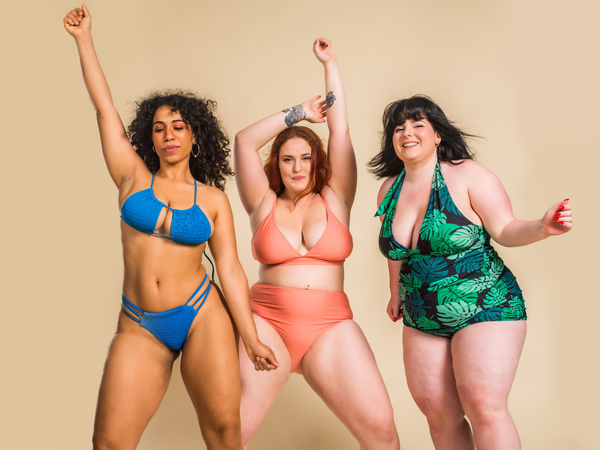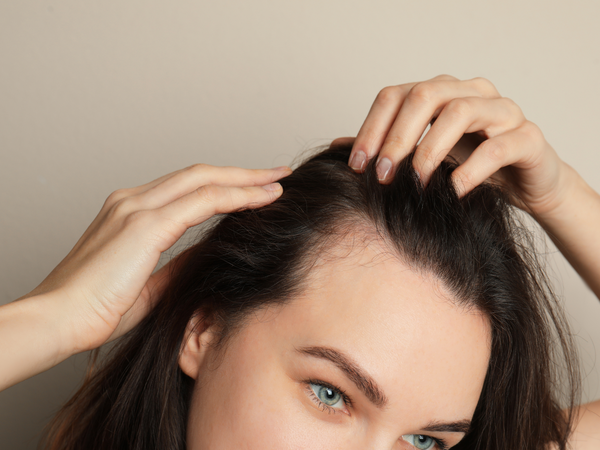The Best Hair Dyes for Eczema and Psoriasis

The Best Hair Dyes for Eczema and Psoriasis
If you have eczema or psoriasis, the fun of dying your hair might have become a nightmare. But, gentle, effective dyes do exist.
Yes, if you are considering using traditional commercial dyes, laden with harsh chemicals, using a hair dye is likely to impact your scalp negatively.
However, natural hair dyes like Henna and Indigo are often not only safe for scalps that suffer from eczema and psoriasis, but they can also be extraordinarily beneficial.
So, what IS the best hair dye for Eczema and Psoriasis? Much depends on the colour you want to achieve. In this article we’ll explore what to avoid and what to choose to get the right result for you.
How Eczema affects the Scalp
Eczema can affect the scalp in many ways. During a less active phase your scalp might just be itchy, or scaly and dry.
If your eczema is chronic, it may become very red and inflamed, and if it is acute, you may find the scalp weeping and sore.
Pro Tip: During the chronic and acute phases, it really is best not to dye the hair at all, only consider using colour if your scalp is not overly sore and has not got broken skin.
The types of eczema you may see on the scalp include:
Seborrhoeic eczema (dermatitis) which is very common. This causes redness, scales and often dandruff, which may be severe. The rash can affect the whole face.
Atopic eczema is also very common, with red, dry, and itchy skin and can easily become infected, especially if scratched and when there is broken skin.
Allergic contact dermatitis can develop as a result of allergens, of which hair dye is a big one. It can make the scalp weepy and very sore.
Pro Tip: Mainstream dyes in particular can have some ingredients that are highly damaging for reactive scalps so it is CRITICAL to ALWAYS do a patch test, even if it’s a dye you’ve used before.
How Psoriasis affects the Scalp
Scalp psoriasis is common, causing raised, red and scaly patches on the scalp. It can appear as a single small patch or cover the whole scalp.
It’s thought to be autoimmune related, is not contagious and has a genetic component.
The skin on the scalp can become very angry, sore and flaky if treated too harshly. It requires very gentle care and careful attention to keep managed and comfortable. At least half of people with psoriasis get it on the scalp.
How Chemical Hair Dyes Impact Eczema and Psoriasis
If you have Psoriasis, as already mentioned, whilst it is safe to dye your hair, it is best to avoid dying it during a flare up. You can still use Henna but there are reasons it is better to wait.
During a flare, the scalp is inflamed and extra sensitive. If you use chemical dyes, you can worsen it to the point of lesions, which are painful. Even using Henna, which stains the hair rather than changing the molecular structure of the strand, can ‘stick’ to the plaque patches, staining them.
Also, the hair can ‘clump’ at this point making it difficult to dye.
If you have eczema, it is also important to think about how you colour your hair. You are more likely to be affected by hair dye dermatitis (which looks like allergenic or contact dermatitis).
You can experience more severe reactions including soreness, burning and are more likely to have allergic reactions that can include anaphylaxis.
PRO-TIP: A good hairdresser can help avoid many reactions by keeping the dye off your scalp, but if dying at home always patch test 48 hours before dying. Use a brush to apply your hair colour and try not to touch the scalp.
Hair Dye Ingredients to Avoid for Eczema and Psoriasis
There are some key ingredients you may want to think about avoiding if you dye your hair and you have eczema and psoriasis:
PPD:
Permanent hair dyes that look to darken your hair often contain paraphenylendiamine (known as PPD). This ingredient should always be avoided. Semi-permanent hair colourants or tints generally do not contain PPD.
PPD is so harmful that in many countries it is banned.
Ammonia:
Ammonia is used to open the hair shaft on chemical hair dyes so that the colour can penetrate the hair.
It can lead to the hair being unable to hold colour naturally (so going grey). It is extremely harmful to the environment and when ammonia is applied to the hair, not only can it be absorbed via the scalp it can dramatically irritate eczema and psoriasis.
Hydrogen Peroxide:
There have been some anecdotal reports of people using Hydrogen Peroxide at a very low volume to ‘dry’ out active psoriasis and eczema patches. Unfortunately the evidence suggests this is almost certainly more harmful than helpful.
Hydrogen peroxide is used to lighten the hair, but at high levels, hydrogen peroxide produces destructive oxidative stress, which can actually cause psoriasis. It also irritates allergen prone skin.
The Best Hair Dyes for Eczema and Psoriasis
If you suffer from eczema and psoriasis, the best dyes for you are botanical. Organic and natural dyes are often based with earth and skin kind formulas that are less likely to damage the hair.
You may want to consider:
Henna
Henna has antifungal and antiseptic properties that make it soothing and friendly to even very sensitive scalps.
By marrying your Henna with other botanicals, like beetroot, tea, amla and cassia you can create a huge variety of colour. Many find their scalp actively improves with henna use!
PRO TIP: To avoid scalp discolouration use an organic barrier balm to protect from staining. Simply apply liberally to the scalp, ears, neck, and hairline where you want to protect from staining.
Make sure to avoid the hair itself, as it will prevent the colour from taking.
You can also buy pre-mixed Henna kits to make the process easier.
Indigo
If you want a darker colour, you can use Indigo either by itself or with Henna. Indigo also has the added benefit of being wonderful on dandruff and flaky scalp.
Like all natural colours, the results of indigo can be variable. Your result will depend on how porous your hair is, how long and the overall texture, so a strand test is a good idea to check the outcome.
Cassia
Cassia isn’t a hair dye, as much as it is a treatment. It’s often called clear henna and if your hair is light, will add beautiful golden accents.
Even dark hair can find its shine, and overall colour becomes richer and more dazzling.
Amla
Amla is a beautiful hair treatment that also works to subtly alter the colour and effects of henna. It tones down the red to something less bright and more neutral, whilst adding shine, soothing the scalp and aiding recovery.
References:
The National Eczema Society: https://eczema.org/information-and-advice/types-of-eczema/scalp-eczema/
Eczema.org https://eczema.org/wp-content/uploads/168-Exchange-Haircare-and-Eczema.pdf
Science Daily https://www.sciencedaily.com/releases/2021/10/211004104229.html



